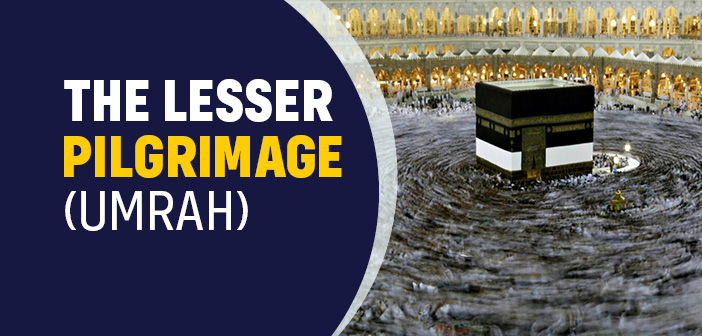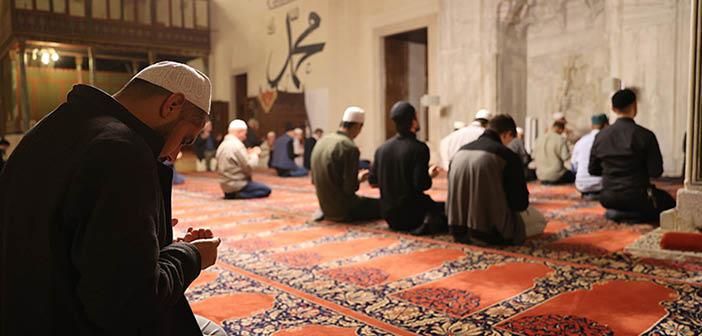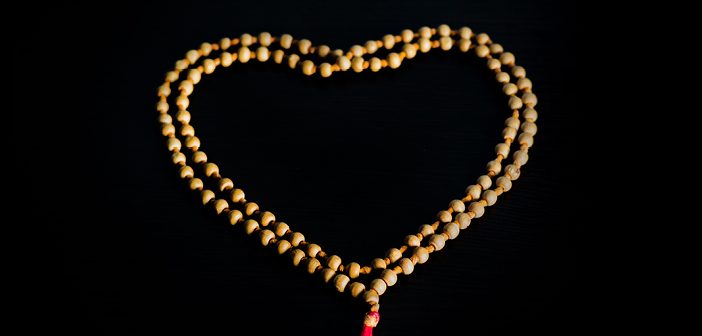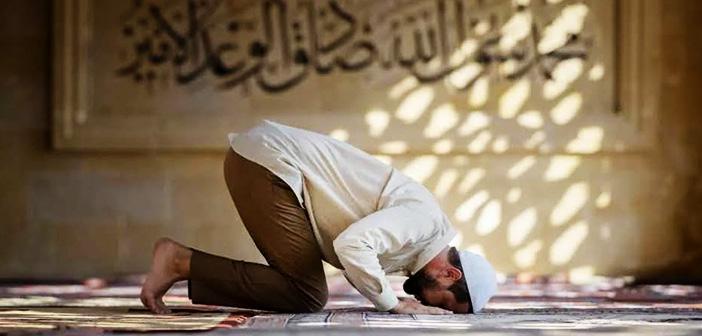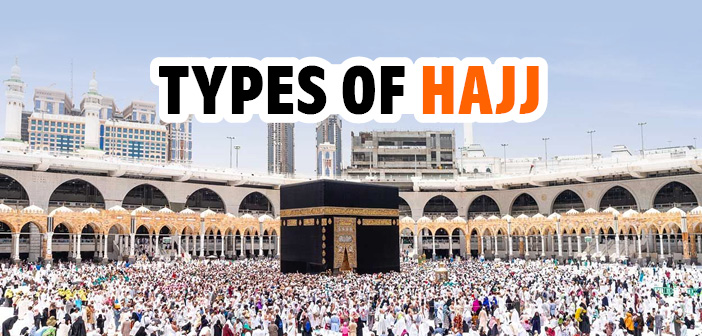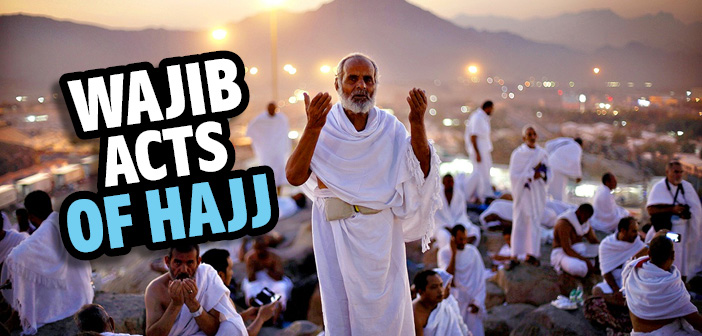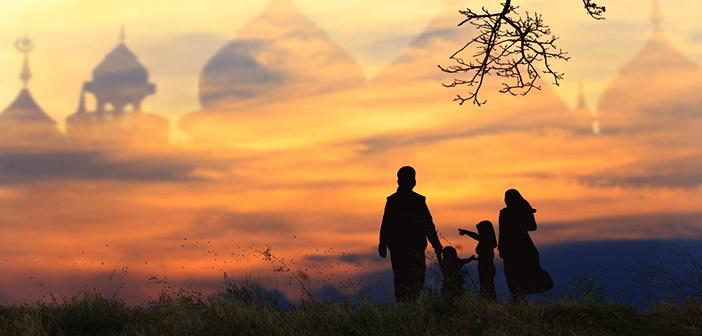
What is The Purpose, Meaning, Importance Of Ramadan in Islam?
What is the purpose, meaning, importance of Ramadan in Islam? Ramadan the holy month of fasting...
“The month of Ramadan in which was revealed the Qur’an, a guidance for mankind, and clear proofs of the guidance, and the Criterion (of right and wrong)". (Baqara, 2:185)
The holy month of Ramadan is a month of opportunity for reward granted to us from Allah, the Almighty. In this month we remember the value of the favors Allah has given to us, which we normally take for granted and for which we do not give sufficient thanks.
The aim of fasting is to achieve taqwa (awe) and curb the selfish soul (nafs), to discipline it and bring it under control. Fasting must be performed in an attitude of worship if we really wish to benefit from its blessings. Because of fasting we can attain high qualities such as patience, a strong will, distancing ourselves from the base desires of the nafs. Like a shield, fasting also protects the honor of the believer by freeing him from the endless preoccupation for eating and drinking like the beasts.
One of the benefits of fasting is that it gives courage and resistance in times of famine and calamities. It also teaches us to be thankful and happy with the bounties of Allah, the Almighty. When we fast we understand the difficulties of the poor who suffer from lack of food, and as a result, our mercy for them is strengthened. This kind of understanding prevents social disturbances and class divisions. We can safely say that the nature of Islamic worship does not permit the class divisions we witness in other nations. Fasting(saum) and prayer (salât / namaz) make everyone equal in front of Allah. No one is exempted from these forms of worship except those who have a valid excuse.
Because of these positive effects of fasting, it was prescribed not only for Muslims but also for the previous nations. Allah, the Almighty, says:
“O you who believe! Fasting is prescribed for you, as it was prescribed for those before you, so that you may guard (against evil). For a certain number of days” (Baqara, 2:183-184)
Islam prescribes a variety of styles of worship for the believers. Different kinds of worship in Islam are meant to cure different kinds of spiritual diseases. These diseases increase especially in the easy times of prosperity and health. In the Meccan period, Muslims did not have a chance to develop such spiritual diseases, because the struggle to survive under such difficult conditions occupied them. However, after the emigration to Madinah the financial situation of the Muslims improved. They were also safe from the persecution of the Meccan non-believers. In order to prevent Muslims from the harm that can come with the abuse of wealth and the enjoyment of bounties there was a need for a kind of abstention or restriction for using worldly possessions. It was time for fasting to be ordained in order to preserve the spiritual health of the believers.
As a matter of fact, fasting is like a medicine against the diseases, whether physical or spiritual. Hence, fasting is prescribed for a limited number of days, not for the entire year. If certain medicines for acute conditions are used all year the immune system of the body can get accustomed to it and it may not sufficiently benefit the user. Similarly, fasting should be carried out in determined times. If we fast continuously it does not help much to cure the illnesses and may weaken the body to the point of making it difficult to fulfill the normal responsibilities that Islam requires. Due to this reason, the Prophet (J) did not allow his companions to fast every day.
All Muslims are obliged to fast in the same month of the year, that is Ramadhan. This strengthens the bonds of unity in the Ummah as well as making fasting easier. This sense of unity gives our spiritual life extra richness and vividness. Another aspect of fasting is that the month of fasting is a lunar month. Hence it moves from one season to another throughout the solar calendar, and we fast on hot summer days as well as on short and cold winter days. Because each day of the year pays respect to Ramadan in a certain period, they are all blessed by it. This variety in the times of fasting also gives a variety of spiritual pleasure and tastes. This makes fasting easy and a different experience each time a believer fasts. We can see this richness also in the verse, which commands fasting. The verse first informs us:
“O you who believe! Fasting is prescribed for you”, then in order to comfort us the verse states that it is also prescribed for other nations: “as it was prescribed for those before you” Finally the verse states that fasting is not meant for all the days of the year: “For a certain number of days;”(Baqara, 2:183-184)
After that, Allah, the Almighty, states the benefits of fasting, and its conditions:
“The month of Ramadhan in which was revealed the Qur’an, (is) a guidance for mankind, and a clear proof of the guidance, and the Criterion (of right and wrong). And whosoever of you is present, let him fast the month, and whosoever of you is sick or on a journey, (let him fast the same) number of other days. Allah desireth for you ease; He desireth not hardship for you; and (He desireth) that ye should complete the period, and that ye should magnify Allah for having guided you, and that you may give thanks..” (Baqara, 2:185)
This verse also shows us that the aim of fasting is to glorify Allah and to give him thanks. In this sense fasting has a positive influence on the rest of other kinds of worship. Shakik Balkhi says: “Worshipping Allah as he deserves is a difficult art. However, it can be achieved through solitude and fasting.”
Reducing the intake of food is also a modern method of medical treatment. Dieting is the first condition of being healthy, even in the practice of modern medicine. By fasting the believers follow it in the best way, learning self-discipline.
Hunger is also a strong medicine, with which to control the nafs. It was narrated that when the nafs was created it had pride: It dared to say its Lord: “You are you and I am I.” However, when Allah punished it with hunger it understood its mistake and professed its weakness and nothingness in front of its Creator. Hence for the health of the nafs there is no better cure than hunger.
Jalaladdin Rumi says: “The real nourishment of man is the light of Allah. Giving excessive material food is not good for him. The real food of man is Divine love and intelligence.
The discomfort of man is due to his forgetting his soul’s nourishment and caring only for the nourishment of the body. This body is not satisfied. (It wants more and more) Because of this disease of greediness his face is pale and legs are shaky, his heart is beating with discomfort. Where is the worldly nourishment and where is the nourishment of infinity? (How great the difference between them)”
Allah said for the martyrs: “They are nurtured”. There is no mouth and no body for this nourishment (they are taken by the soul).
Hadrat Lokman advises his son: When your stomach is full, your intelligence sleeps oblivious to wisdom and the limbs are lazy for worship.
A friend of Allah said: I take refuge in Allah from the Sufi who fills his stomach with all sorts of food and corrupts it.
The Mother of believers, Aisha said: Try to open the doors of the malakût (spiritual world). They asked: How? She answered: Through hunger and thirst.
The great friend of Allah Mahmud Sami Ramazanoghlu emphasizes the significance of eating and drinking little in his book Mukerrem Insan (The Perfect Man) and says: “They asked the doctors: What is the best cure, they answered: Eating little. The people of wisdom are asked how they found so much power and courage for worshipping Allah. They answered: Eating little. The ascetics are asked: What makes the tie between man and Allah stronger: They answered: Eating little. The scholars are asked: What is the best state for learning. They answered: being in a state of hunger (rather than satiety) and eating little.“
There are so many benefits in eating little (never eating until the stomach is filled):
- 1. In moderate hunger there is clearness of mind and heart; the memory is stronger. In the state of being overly full, there is forgetfulness and foolishness.
- 2. In moderate hunger there is gentleness of the heart. The heart benefits and takes pleasure from worship and supplication. With a full stomach the heart is insensitive and takes no pleasure in worship.
- 3. In moderate hunger there is softness of heart and humility. Satiety produces insolence, conceit, pride and bragging.
- 4. In moderate hunger one thinks of the poor and hungry, whereas a man with a full stomach never remembers the poor and the needy.
- 5. In moderate hunger the appetite, needs and wishes of the animal soul are broken. When full the animal soul is strong and the desires find strength.
- 6. In moderate hunger the body is in an agile and aware condition. When full it feels sleepy and careless.
- 7. In moderate hunger one feels ready to worship and give service to Allah. When the stomach is full one feels lazy and lax.
- 8. In moderate hunger, the body is healthier. Sickness disappears. Overeating makes the body feel worn out and sick.
- 9. In moderate hunger the body feels light and spacious making, one cheerful.
- 10. In moderate hunger one feels more generous and ready to provide support for the poor with charity. . On the other hand those who do not experience hunger at all, do not understand the sufferings of the poor. Also, for this, in the heat on the fearful Day of Judgment, the servant will come into a state of coolness and shade. Fullness produces a state that goes from stinginess to wasteful spending which leads to the destruction of the servant.
In other words, a full stomach urges the animal soul and ego to be active in order to satisfy its base desires. On the other hand, fasting when it is performed without going to the extreme opens up the faculties of meditation and makes the human heart more sensitive to the Divine realities. The following hadith summarizes what we have said so far: “Fast and find (both spiritual and physical) health.” (Taberani)
The practices of the great Prophets of Allah also reveal to us the significance of fasting in order to reach spiritual perfection. Fasting was one of the most effective methods used by Allah the Almighty for perfecting the Prophets. Through fasting, the Prophets were prepared to receive revelation from Allah. As an example, Moses (a.s.) fasted 40 days and nights when he was waiting to receive revelation on the Mountain of Sinai. After this fasting period the Torah was revealed to him. Similarly, Jesus fasted the same number of days before he received the Injil (Evangel or Gospel).
Similarly, our Prophet Muhammad (J) spent a month in the cave of Hira near Mecca, worshipping Allah and contemplating His greatness. After this preparation period he received the Divine message from the archangel Gabriel, and his heart was filled with the light of the Divine Blessings.
All this shows that the real benefit of fasting is spiritual rather than physical. Hence when we fast we must only aim to worship Allah, the Almighty. If we aim for worldly goals such as cutting down on our spending for food or losing extra weight, we miss out on the real benefits We can also say this for other acts of worship: For example, if one performs the daily salât for its value as exercise and to keep fit he is not considered as performing Allah’s command. Rather, such a person is following the command of his ego under the guise of worship.
All acts of worship should be performed with only one aim in mind: to attain Allah’s pleasure. To do this one needs to train and educate the heart, to clean it from such base thoughts. We also cannot attain Allah’s pleasure through these sort of egoistic goals.
In order to benefit fully from the holy month of Ramadan, the following advice of the Prophet (J) should be followed:
1-To repeat the Shahadah
2-To ask forgiveness from Allah and to chant his names
3-To perform all possible good deeds (a’mal al-sâliha) in order to attain Paradise
4-To refrain from what has been forbidden (harâm) so as to save ourselves from the flames of hell.
5-To give charity generously and to make those whose hearts are broken happy.
6-To give iftârî (food upon opening of the fast) to the believers.
Of course, there is no limit to what one can do as a good deed. Everybody should do his best in order to compete in doing any good that is for the good of the Muslim community. Ramadan is the season for perfecting the believers morally. As we are careful not to use our mouths for eating during Ramadan, we must similarly be careful not to use them for backbiting and useless talk. Otherwise, we miss the real target of fasting, which is to perfect the manners of the believer in accordance with Islamic morality.
Concerning this, the Prophet (J) said: “Fasting is a (protecting) shield as long as the fasting person does not harm his fast.”
The companions asked the Prophet (J) how the fast is damaged. The Prophet (J) answered: “By lying and backbiting.” (Nasâi, Mu’jam al-awsât)
The backbiters refrain from eating during the daytime but because of their backbiting they eat human flesh. Hence their physical fast is broken. For such people Sufian Sawri says:
“Backbiting breaks the fast.”
Similarly, the famous scholar Mujahid says that backbiting and lying break one’s fast. For those who contaminate their prayers (salât) and fasting (sawm) by backbiting, slandering and offending others in a heedless and cruel manner the Prophet (J) says: “Among many who fast their share is only hunger. There are many who perform night prayers and their share is only exhaustion.”
In another similar hadith the Prophet (J) said, “Whoever does not give up forged speech and evil actions, Allah is not in need of his leaving his food and drink (i.e. Allah will not accept his fasting.)” (Bukhari, Vol. 3, Book 31, Number 127)
These hadiths clearly show us that it is very important to control our behavior in Ramadan. We must prepare our heart and mind for fasting. It should not be done heedlessly and carelessly. We must perform our salâts with extra care and attentiveness, strengthen our soul by the remembrance of Allah, recite the Qur’an with an attentive heart and mind, clean our wealth and our consciousness by giving charity and zakât. We should not forget that the Holy Qur’an was revealed in the month of Ramadan and we must show extra care in order to apply the injunctions of the Qur’an in our lives.
The real recitation of the Qur’an is performed by the heart. The external eyes function as glasses for the eye of the heart. There is a close connection between Ramadan and the Qur’an. Ramadan is the time to listen to the voice of the Qur’an; the voice which reminds us of our real destination, which we will arrive at after death. The Prophet (J) said: Fasting and the Qur’an will be intercessors on the Day Judgment.” (Ahmad b. Hanbal, Musnad, II, 174)
“Fasting is half of patience.” (Tirmidhi, Daawat, 86)
The reward of fasting will be determined in the Hereafter on the Day of Judgment: In a hadith al-Qudsi, as narrated by Abu Huraira:
Allah’s Apostle said, “Allah said, ‘All the deeds of Adam’s sons (people) are for them, except fasting which is for Me, and I will give the reward for it.’ Fasting is a shield or protection from the fire and from committing sins. If one of you is fasting, he should avoid sexual relations with his wife and quarrelling, and if somebody should fight or quarrel with him, he should say, ‘I am fasting. By Him in Whose Hands my soul is ‘ The unpleasant smell coming out from the mouth of a fasting person is better in the sight of Allah than the smell of musk’. There are two pleasures for the fasting person, one at the time of breaking his fast, and the other at the time when he will meet his Lord; then he will be pleased because of his fasting.” (Bukhari, Volume 3, Book 31, Number 128)
The Qur’an in the following verse enumerates the classes of those who will receive forgiveness and a mighty reward, mentioning those who fast:
“Surely the men who submit and the women who submit, and the believing men and the believing women, and the obeying men and the obeying women, and the truthful men and the truthful women, and the steadfast men and the steadfast women and the humble men and the humble women, and the almsgiving men and the almsgiving women, and the fasting men and the fasting women, and the men who guard their private parts and the women who guard, and the men who remember Allah much and the women who remember- Allah has prepared for them forgiveness and a mighty reward.” (Ahzab, 33:35)
The Prophet (J) also informs us that the believer who fasts will be rewarded twice, once in this world and once in the next. In this world the reward is at sunset at the time of breaking the fast. The second is when he meets his Lord when he will granted a very high place. However, we are not informed of the reward in order to increase our love for fasting. In worldly contests sometimes rewards are kept hidden in order to increase the suspense for them.
Fasting is such a form of worship where through it one can learn how to value the favors of Allah, the Almighty. The fasting man gets a chance to understand the difficulties of poverty and hunger. Through fasting the believer saves himself from slavery to the material and attains the highest quality of self-control.
In addition to fasting, offering the tarawih salât in congregation after the late-night prayer of ‘Isha, is also a sunnah in the month of Ramadan. In many places throughout the world the entire Qur’an is recited during this month and in this prayer. However, these salâts should be performed with devotion, slowly and not in a quick manner. Unfortunately, in some mosques people pray tarawih salât as if they are racing with each other. The Prophet (J) informs us that he made the tarawih prayers his sunnah so as to be followed by the Muslim community. He further statd that if a believer fasts in the month of Ramadan expecting reward only from Allah, and performs the tarawih salât, he becomes as sinless as on the day he was born from his mother. (Ahmad B. Hanbal; Nasâî)
Another important point in Ramadan is to have the meal at suhur. Suhur is taken before dawn begins, when the time of fasting starts. Normally people have their iftar (fast breaking meal) on time but most people neglect having suhur since it is taken very early. We must be strong-minded about having something, even if it is a glass of water. Concerning this subject as narrated by Anas bin Malik, the Prophet (J) says:
“Take Suhur as there is a blessing in it.” (Bukhari, Volume 3, Book 31, Number 146)
As narrated by Sahl bin Sad: Allah’s Apostle said, “The people will remain on the right path as long as they hasten the breaking of the fast.” (Bukhari, Volume 3, Book 31, Number 12)
*
In order to realize the reality of the Holy Month of Ramadan one needs to open his heart to the rain of forgiveness and Divine Blessings. The rocks and the seas do not benefit from these rains, only fertile lands benefit from it. In other words, through awareness of Allah’s presence and giving thanks to Him for his favors we should benefit from this month. The Prophet (J) informs us the following good news:
“When the month of Ramadan starts, the gates of the heaven are opened and the gates of Hell are closed and the devils are chained.” (Bukhari, Volume 3, Book 31, Number 123)
This means that those who fast in the real sense of fasting do not commit sins. As research conducted in Islamic countries, the crime rate falls to its lowest rate in the month of Ramadan. The evil of Satan is limited, however, the evil of the ego continues, hence Muslims should be vigilant against their base desires.
The Prophet (J) also informs us that in the month of Ramadan paradise adorns itself with all kind of charms and supplicates Allah saying: O my Lord! In this month, let people enter me. (Taberânî)
Fasting is described as physically refraining from food, drink and sexual intercourse but it also requires the protection of the soul from all animal-like desires and inclinations. The Sufis emphasize the spiritual dimension of fasting and consider it an essential part of fasting. As one refrains from eating and drinking similarly he should refrain from vices such as backbiting, lying, and other base desires. The Prophet (J) warns us in this regard and says: “Whoever does not give up false speech and evil actions, Allah is not in need of his abstaining from food and drink (i.e. Allah will not accept his fasting.)” (Bukhari, Kitâbu’s-sawm, Volume 3, Book 31, Number 127: Tirmîdi, Bâvu’s-sawm, Abû Dawud, sawm, 236, Ibn Maja, 122)
As required in this hadith we should refrain from all sorts of vices that will damage our fasting. In particular, the vice of anger and hostile behavior should be eliminated.
Allah’s Apostle (J) said, “Fasting is a shield. The person observing fasting should avoid sexual relations with his wife and should not behave foolishly and impudently, and if somebody fights with him or abuses him, he should tell him twice, ‘I am fasting.” The Prophet (J) added, “By Him in Whose Hands my soul is, the smell coming out from the mouth of a fasting person is better in the sight of Allah than the smell of musk. (Allah says about the fasting person), ‘He has left his food, drink and desires for My sake. The fast is for Me. So I will reward (the fasting person) for it and the reward of good deeds is multiplied ten times.” (Bukhari, Volume 3, Book 31, Number 118)
Another name for the month of Ramadan is the month of patience and forbearance. Some commentators of the Qur’an explains the Arabic of fasting sawm with the words sabr meaning patience implying the similarity of these two words. With this respect, sawm is to be resilient against the base desires, and to be patient against the difficulties.
In Islam, patience occupies the central place among other good characteristics. Patience is half of faith and the key to salvation. Through it one attains paradise. Patience is to be resilient against unpleasant events without damaging our balance and to submit to the will of Allah. The prophets as well as the friends of Allah reached high states and the help of Allah through patience. Having to show patience in this world gives us a bitter taste but it will give sweet fruits in the Hereafter. In order to lessen the bitterness of patience we should contemplate the favors of Allah that are bestowed on us. We should think that there is wisdom behind the calamities and if patience is shown there will be great rewards in return. The most important principle in the concept of patience is that a Muslim should show it at the first strike of the calamity. When the pain of the disaster has lessened then patience will not be rewarded as such. The Divine name “As-Sabûr” is most beautifully reflected in the prophets and friends of Allah. As the most important legacy given to us, patience is the most important characteristic both in times of happiness as well as of calamities, in times of poverty as well as wealth.
*
In order to fast in the consciousness that Allah is with us we should carefully fulfill the components of fasting such as suhur, tarâwih, reciting the Qur’an, engaging in humble and earnest supplication and in the remembrance of the name (attributes) of Allah.” The time of breaking the fast is a good time when Allah accepts the prayers and answers the supplications; it is the time of unity with Allah. To spend this time with others and to share the blessings is important since this is the source of mercy and spiritual contentment. Therefore the Prophet (J) advises us to share our food with the Muslims at iftar
“Whoever gives an iftârî (meal to break the fast) to a fasting person, he will be rewarded the same amount with the fasting person and the reward of the fasting person will not be lessened (due to extra reward given to the host). (Tirmidhi, Sawm, 90)
When the poor companions heard this tradition they came to the Prophet (J) and said that they did not have the means to give as much food as the rich. Upon this the Prophet(J) told them that even if they gave half a date or a little milk in order to open the fast they would be rewarded the same amount as the rich sahabis (Companions) who gave full iftaris.
*
In addition to obligatory fasting we should also perform voluntary fasting. The characteristic of the chosen slaves of Allah is trustworthiness. This can be reached through having good intention and purification of the ego. The Prophet (J) and his companions practiced voluntary fasting quite often under severe conditions in the heat of the Arabian Peninsula. Some of them even did not have garments to protect them from the fierce heat. They would fast even the very hot days. They would cover their bodies with their hands in order to protect them from the excessive heat. Under all these conditions they would continue voluntary fasting by feeling the taste of excessive spiritual contentment.
For those who fast voluntarily there are occasions where they might have to break their fast before sunset due to an invitation or some other reasons. Depending on the situation a believer may either prefer to complete the fast or can break it in order to please his friends and make up for it on a different day.
Abû Saîd (may Allah be happy with him) narrated the following incident:
“One day I had prepared food for the Prophet (J) and his companions. When I served the food one of the companions said: I am fasting. Upon this the Prophet (J) stated: Your brother has invited you and made preparations for you and now you are saying that you are fasting. Break your fast now and make up for it on another day.” (Tirmidhi, Abu Dawud)
“On another occasion the Prophet (J) and some of his companions ate food while Bilâl was fasting. The Prophet (J) commented upon the situation of Bilal and said: We are eating our sustenance, Bilal’s sustenance is in paradise.” (Ibn Majah)
These traditions give us the choice of completing a voluntary fast or breaking it, as the conditions require.
*
Allah will judge all our actions and life. The best of times are the ones that we spend with Him for His sake. When we enter the grave all our transient reminiscences, and memories will be buried as well. However only the good actions we have performed for the sake of Allah will benefit us. The Prophet (J) states that when a believer dies, his ritual prayers (salât) will rest above his head, his charity on the right and his fasting on the left. (Fadâil al-Amâl)
A lifetime spent that was not for the sake of Allah is a deception, like the vision in the desert heat. It has no reality but is only an illusion of the mind.
By the mercy of Allah, we follow the advice of the Prophet (J) and appreciate the great chance that the Holy months of many Ramadans offer to us so that way we can perform good actions and as we struggle to decrease our mistakes.
The Prophet (J) says: If people really knew the nature and blessings of Ramadan they would wish that Ramadan would continue all year. (Ibn Huzeyma, Sahih, III, 190)
The Holy Ramadan is a climate of forgiveness; in this month all the pillars of Islam can be performed except pilgrimage. However, Ramadan prepares the believers spiritually for the duty of pilgrimage by refining their morality. In pilgrimage, Muslims are trained to be nice and not aggressive, disobedient slaves.
Ramadan is a great opportunity for all the believers to attain Allah’s pleasure. It is the season of blessing and salvation. As the Prophet (J) says: The beginning of Ramadan is mercy, its middle salvation and its end safety from Hell. (Ibn-i Huzeyme, Sahîh, III, p.191)
The month of Ramadan is like the season of spring where the trees bloom and the greenery is everywhere. Similarly the dry trees of faith find life in Ramadan through the water of good actions. However, those who do not know the value of Ramadan are in great loss as stated in the following hadith:
“One day the Prophet (J) asked us to sit closely around the minbar (the pulpit from where he gave his Friday sermon). Hence, we all gathered around. The Prophet (J) started to climb the stairs. On the first step he said: ‘Amin’, on the second step he again repeated the same phrase: ‘Amin’. On the third step he again said: ‘Amin’.
When he got down from the minbar we asked him:
“- O prophet we heard something that we have never heard from your before. Why did you say Amin three times?”
The Prophet (J) said:
- When I was climbing the first step, Gabriel came to me and said: the curse of Allah be on those who did not use the chance of Ramadan to attain Divine forgiveness. And I said: ‘Amin’.
When I was on the second step Gabriel prayed: “Let be the curse be on those who did not say “peace be on you” when your name was mentioned.” And I said: “Amin!”
In the third step Gabriel again said: “Let be the curse (of Allah) be on those who did not attain paradise although they survived to the old age of their parents or only one of them (i.e. those who did not serve either of their parents or both of them in their old age and attain the big reward as a consequence).”
I again said: “Amin!” (Hakim, Müstedrek, IV, 170)”
This hadith clearly indicates the miserable end of three groups of people. The first group are those who did not worship Allah in the month of forgiveness- Ramadan. The second group are those who did not say peace be on him when his name was mentioned. And the last group are those who did not look after their parents in their old age. We should be very careful in these three important things if we want to enter Paradise.
*
In addition to fasting, the days of Ramadan should be valued and adorned with other good acts, in particular helping the disadvantaged. The orphans, the widows, the helpless, the sick, the poor and other needy groups should be supported financially and they should not be left alone to face their problems. They should be given a friendly hug, in that way the value of Ramadan will be realized. These kinds of charitable acts will cause Allah’s forgiveness to burst endlessly. The good servants of Allah who fulfill these kinds of acts, will be covered with Divine Mercy and Blessings. Allah opens the doors of mercy and closes the doors of hell. The Prophet (J) states: “Charity prevents seventy kinds of calamities.” (Suyûtî, al-Jâmiu’s-Saghîr, v.II, p.52)
“Charity extinguishes the wrath of Allah” (Tirmidhi, Zakât, 28)
Luqman Hakim advised his son: “O my son! When you commit a sin knowingly or unknowingly, repent to Allah immediately and give charity.”
In short, the charity given in the month of Ramadan is rewarded excessively and the prophet (J) states the exclusiveness of the month in the following words:
“O Messenger of Allah! Which charity is best in terms of reward.”
The Prophet (J) answered: The charity given in the month of Ramadan. (Tirmidhi)
The friends of Allah divide the charity givers into three groups. The people of Sharîah (obedience to the law) give charity from their wealth. The people of haqîqah (reality) give from their souls in addition to from their wealth.
The Gnostics (ârifûn) give from their hearts since their hearts are always in the presence of Allah. The lovers give from their souls since their souls are content with the manifestations of Divine destiny written for them. The charity of the rich is realized through the removal of money from their purse, the charity of the Sufis is to remove everything else other than Allah from their hearts.
The charity of the worshippers (abid) is from their nafs since they do not refrain from sacrificing their bodies in worship and service of Allah.
The generous people whose hearts are also rich do not resent donating their money to the poor. The poor and the weak become happy with the presence of the rich who give thanks to Allah for His favors (by donating their riches to the poor). As the April clouds water the dry lands with blessed rain, similarly the merciful, generous people manifest the mercy of Allah over His slaves.
The more sincerely and lovingly the rich donate, the more benefits and blessings are received by the one who receives. Such giving and taking become a source of felicity for both sides. The spiritual deepness of the donor is reflected from the one who receives. This is called a trade that without loss (tijâratan lan taburâ).
On the other hand Allah, the Almighty states in the Qur’an:
“O ye men! It is ye that have need of Allah: but Allah is the One Free of all wants, worthy of all praise.” (Fâtir, 35:15)
Therefore the only real Rich One is Allah. All the slaves of Allah rich or poor should realize that they are always in need of Allah and feel the state of poverty to Allah at all times. The Sufis and great scholars in order to show the high status of poverty said: “Poverty is our pride!”
These words are a sign of wisdom. Since it is the preference of the richness of the heart over the richness of the worldly possessions. This feeling is the source of virtues both in the good-hearted rich and poor people. This phrase also implies to be content (kanaat) with what one has, even if it is a small amount.
If a rich person has the characteristic of feeling content with what he has he will protect himself from being miserly or prodigal. If a poor person has this characteristic he/she will lead a life of chastity and will only ask his needs from Allah. As Rumi states what befits to the generous is to donate to the poor and what befits to the lover is to sacrifice his life for the sake of the beloved.
The life of the Prophet (J) sets the highest example of giving charity, and the great scholar Ibn Qayyim describes the generosity of the Prophet (J) in the following way:
The Prophet (J) was not like anyone in giving charity. He never gathered worldly possessions in his house. If someone asked from him something he would not reply without giving neither too little nor too much. When he gave he would give without the fear of becoming poor. For him giving charity was the highest pleasure. His pleasure was much more than the one who received the donation for an urgent need. He was the most generous of people in giving in the way of Allah. His right hand was like a generous wind that scatters the bounties of Allah’s mercy. If a needy person told about his suffering to him he would be very sad and would prefer the needy to his own needs and sometimes would give his own food and dress to the needy person. In the commentary of Hazîn it narrates that Hadrat Jabir said:
A little child came to the Prophet (J) and told him that his mother needed a shirt. At that time the Prophet (J) did not have any shirt except the one he was wearing. Therefore he told the child to come back later. The child left but after a while he came back again and told the Prophet (J) that his mother wanted the shirt the Prophet (J) was wearing.
Upon this, the Prophet (J) entered his room and took off the shirt and gave it to the child. After a short while the prayer time commenced and Bilâl started calling the believers to prayer by reciting azân. After making the azan the companions waited for the Prophet (J) to lead the congregation but he did not come to the mosque. When they went to his room in order to check what happened, they understood that the Prophet (J) would not come to the mosque since he had no shirt to wear. This led them to contemplate a long time about the generosity of the Prophet (J).
Umar b. Abdulaziz who was honored by being called the fifth caliph of Islam due to his piety and justice stated: “The congregational prayers take you to half way to Allah. Fasting opens the gates of the King’s palace and charity takes you to the presence of the King”.
In conclusion, we should do our best to use this opportunity given to us in the current year. We never know if we shall be privileged again to reach the holy month next year. Apart from fasting and performing our prayers in the mosque we should recite the Holy Word of Allah. We must give charity generously to the poor. The Prophet (J) informed us that the best charity is the one which is given in the month of Ramadan. By combining all these good deeds we must turn to Allah in humbleness and sincerity. May Allah help us to perform fasting in the best way.
Ubayd b. Umeyr narrates: “Human beings will be resurrected in the Hereafter as naked, excessively hungry and thirsty. Those who fed others for the sake of Allah will be fed, and those who gave water for the sake of Allah will be quenched, and those who gave clothes for His sake will be clothed.
The Prophet (J) says: O human being! Give charity to others so as you will be donated to as well. (Bukhari, Muslim)
The reality of charity is explained in the best way by Rumi:
“Wealth does not decrease by giving charity, giving charity protects wealth from destruction.
The alms dues you pay become the guards of your purse, the salats you pray become your shepherd protecting you from the wolves and other troubles.
Those who sow grains at seedtime make their granary empty but at harvest time they receive back their seed many fold. In exchange for one empty granary he receives back many more full granaries.
On the other hand, if the wheat is not sown and is left in the granary, the fleas, worms and mice devour it.”
Allah, the Almighty states in the Qur’an:
“And spend out of what We have given you before death comes to one of you” (Munâfiqûn, 63:10)
“Those who hoard up gold and silver and do not spend it in Allah’s way, announce to them a painful chastisement,” (Tawba, 9:34)
The alms due and voluntary charity are given for the sake of Allah. Therefore they should be given respectfully as if Allah is receiving them. The Prophet (J) emphasizing this point says:
“Without doubt, charity is received by Allah’s Hands (of power) before it is taken by the hands of the poor. (Allah takes it first and then gives it to the poor). (Munawî, Kanz al-Haqâiq)
The following hadith also clarifies this fact: Allah’s Apostle said,
“If one gives in charity what equals one date-fruit of honestly-earned money and Allah accepts only honestly earned money- Allah takes it in His right (Hand) and then enlarges its reward for that person (who has given it), as anyone of you brings up his baby horse, so much so that it becomes as big as a mountain.” (Bukhari, Vol. 2, Book 24, Number 491)
The significance of charity is also stressed by the Qur’an since the verse confirms that it is Allah who receives the charity:
“Do they not know that Allah accepts repentance from His servants and takes alms, and that Allah is the Oft-returning (to Mercy), the Merciful?” (Tawba, 9:104)
Therefore a believer should be very careful when giving charity. The Qur’an describes the morality of giving charity in the following verse: “O you who believe! Do not make your charity worthless by reproach and injury, like him who spends his property to be seen of men and does not believe in Allah and the last day;” (Baqarah, 2:264)
In order not to cause injury and reproach, the friends of Allah stand up in front of the needy to give their charity as a token of modesty. The prophet Solomon (a.s.) did not give his heart to worldly riches, and removed all sorts of worldly love from his heart. He used to visit the poor and enjoyed sitting with them. He would say that the poor suit the poor. In that way he displayed great modesty in spite of great riches. He had really realized the meaning of the verse:
“O mankind! Ye are poor in your relation to Allah. And Allah! He is the Absolute, the Owner of Praise.” (Fâtir, 35:15)
One day a heedless rich man asked him why he liked sitting with the poor:
“Why do you accompany the poor and eat with them?”
“Solomon (a.s.) answered: I only like those whose hearts are rich even though they are materially poor.”
A water jug when its mouth is closed can travel in the sea for many miles without sinking. Similarly, a Muslim’s heart, when it is filled with the love of Allah and is closed to egoistic desires, can survive in the storms of worldly oceans. It reaches high stations without sinking into the traps of worldly glamour.
A Muslim when his heart is tempered by generosity, mercy, modesty and love is not deceived with the glamour of the world and spiritually can attain high stations. Worldly adornments carry no value in the eyes of the soul. The only wish is that the heart be filled with the love and knowledge of Allah and in that way be able to fly in the heavens of Divine love.
*
In the holy month of Ramadan there is one particular night called Lailat-ul- Qadr (Night of Power) that should be spent in the worship of Allah. It is a special time when Allah spreads his mercy over the community of Muhammad (J). On this night, Allah bestows his spiritual treasures on Muslims. For its great value, Allah, the Almighty, revealed a chapter named the Chapter of Power. It is a remembrance left by Allah from the time of the Prophet (J) for those who aspire to spiritual realities and for those who would like to attain mercy and forgiveness.
The Prophet (J) stated: “Those who spend the night in worship and service, believing in its value and sacredness, their previous sins will be forgiven except those violating the rights of their fellow slaves.” (Buhari, Muslim)
We can attain the reality of this when the believer purifies his soul from vices such as hypocrisy, ostentation, haughtiness, and spends this time with such acts as fasting, prayer, and giving charity. If we finish our spiritual training in the school of Ramadan successfully then we will be qualified for a degree to celebrate the Eid-ul-Fitr, the prayer and holiday at the end of the month.
*
We are travelers on the spiritual path to attain the Truth. One day we will pass the means that we have today or they will be taken away from us. If we fail to utilize these opportunities we will ultimately regret the lost days and the lost chances.
The days of Ramadan are days of forgiveness and being freed from hell, and due to this when the holy month passes, good believers shed tears out of sorrow. However, Allah, the Almighty, rewards us with the celebratory Eid as reward for our of patience, fasting and other charitable acts.
May Allah, the Almighty, make our lifetime one whole Ramadan and our morning in the Hereafter an Eid and feasting day. Amen.
Source: Osman Nuri Topbaş, ISLAM SPIRIT AND FORM, Erkam Publications


